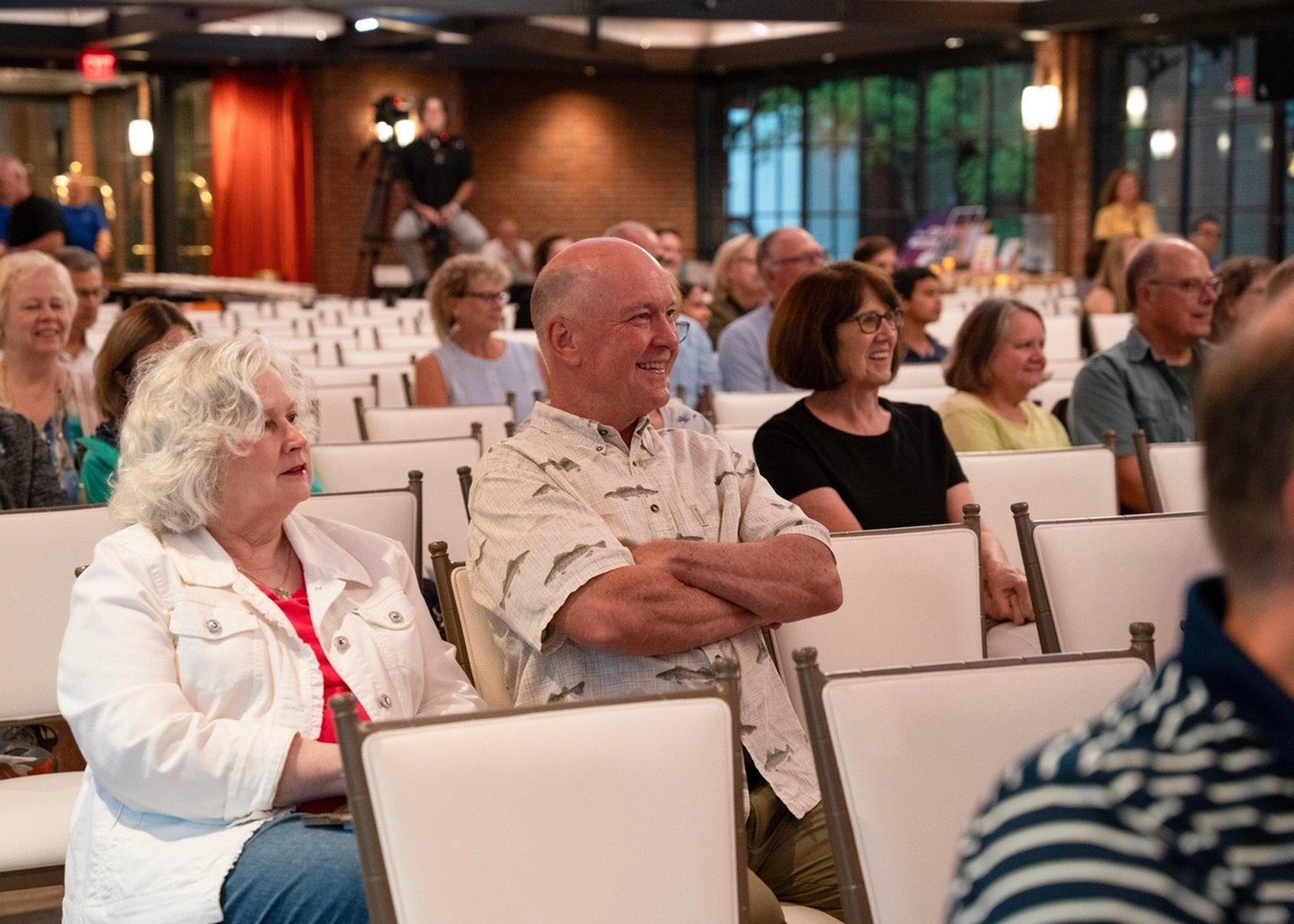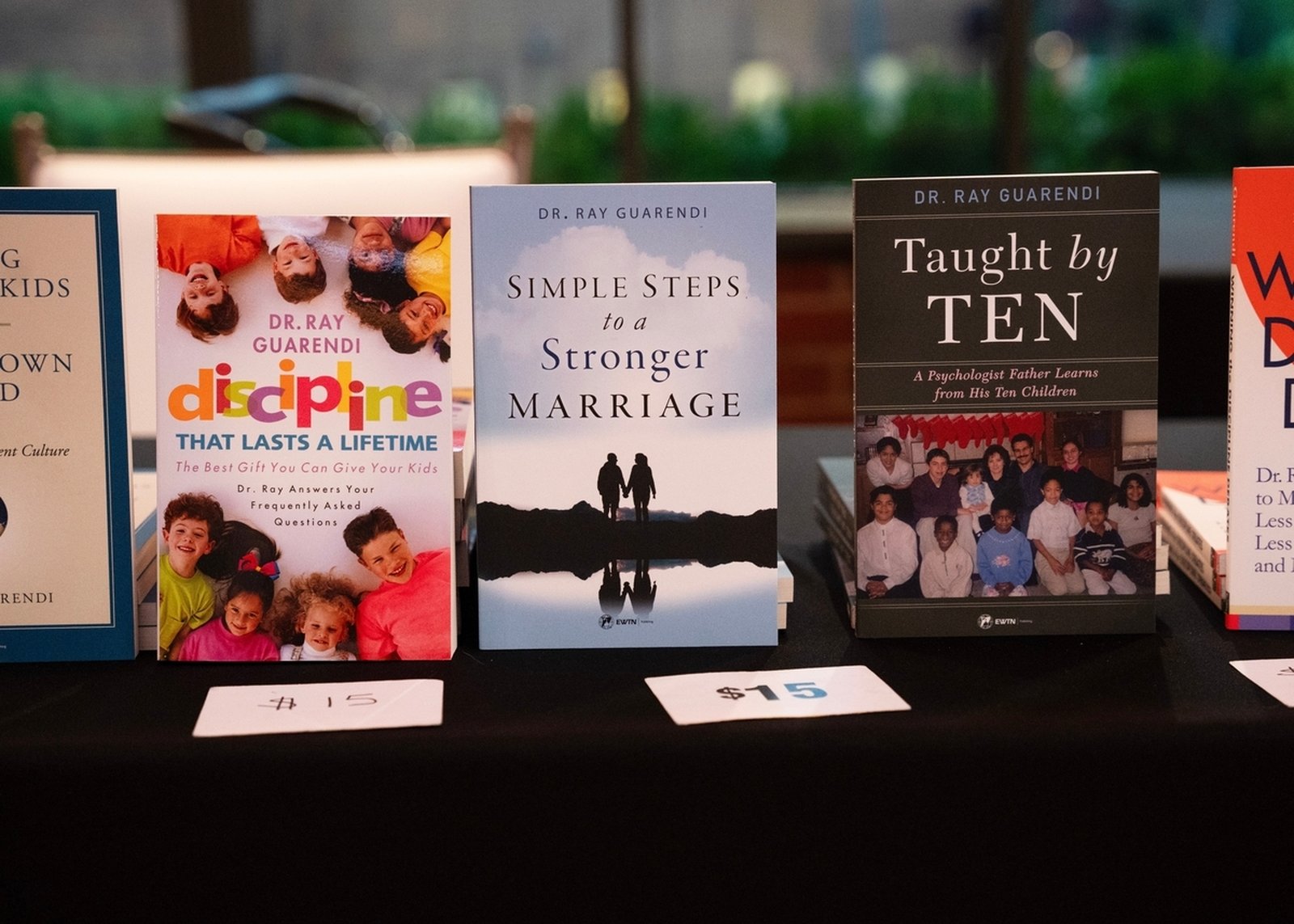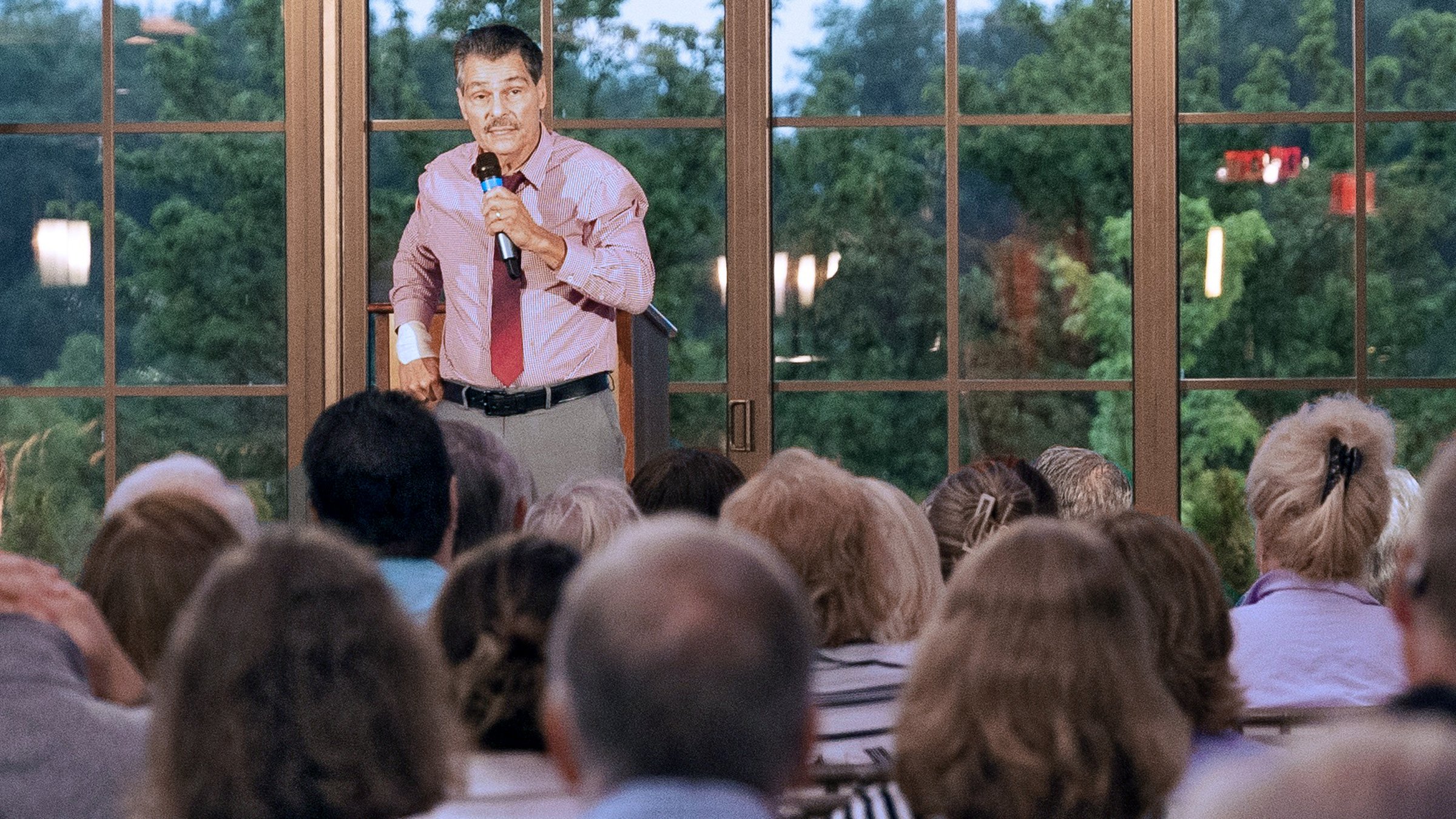Popular radio host 'Dr. Ray' kicks off fourth season of AIP Speaker Series in Plymouth with talk on 'The Logic of Being Catholic'
PLYMOUTH — The storm raging outside was big, but the laughs and conviction of the message were bigger during the inaugural lecture given by Dr. Ray Gurendi to launch the fourth season of the AIP Speaker Series at St. John’s Resort on Tuesday evening, Aug. 27.
Going on four years, the AIP Speaker Series (AIP stands for "Anything is Possible") presents monthly free lectures by world-renowned speakers to “inspire and reinvigorate” Catholics to live as missionary disciples in today’s changing world. Past speakers have included Fr. Mike Schmitz, Andreas Widmer and Scott Hahn. All lectures are open to the public and available to stream on YouTube.
Dr. Ray Guarendi is a father of 10 adopted children, a clinical psychologist, an author of nearly 20 books, a professional speaker, and a national radio and television host. His radio show, “The Doctor Is In,” can be heard on more than 440 stations and Sirius XM channel 130. His TV show, “Living Right with Dr. Ray,” can be seen on EWTN Global Catholic Network and is aired in 140 countries.
Dr. Guarendi’s talk, “The Logic of Being Catholic,” addressed his departure from the Catholic Church for eight years and how logic brought him back to the heart of the Church.

People don’t leave the Catholic Church because of popular beliefs such as giving money to the poor or a prohibition against violence, Dr. Guarendi said. Rather, most leave or drift away because of issues pertaining to human sexuality and life, including abortion, contraception, adultery, fornication and homosexuality.
While some denominations have drifted from these teachings over the years, Dr. Guarendi explained that the Catholic Church, rooted in the writings of the Church Fathers, never contradicts itself and is coherent.
The Catholic understanding of the relationship between Scripture and tradition, for example, is inherently logical and forms the basis for the Church's teaching, Dr. Guarendi explained.
As an example, Dr. Guarendi pointed to one of the pillars of Protestant belief, sola scriptura — the belief that all of Christian teaching can be discerned from the Bible alone. With the help of the Holy Spirit, this doctrine teaches that a person can read the Bible, understand it and then come to a conclusion about what Christianity is, Dr. Guarendi said.
However, such a system inevitably breaks down, Dr. Guarendi said, when people's interpretations diverge from one another, creating a logical problem. For example, he said, there are more than 30,000 Christian denominations and independent churches in the United States, each with its own understanding of Scripture and set of beliefs.
“When I brought this to my non-Catholic friends, here is the answer they came back with: ‘There may be a lot of independent churches, but we agree on the basics,’” Dr. Guarendi said. “(But) who decides on the basics?”
For Catholics, the answer to this question is simple, logical and straightforward, Dr. Guarendi said. Because Christ founded a Church, it is to this Church that he intended his followers to look when disagreements arose.
“Back when the Bible was put together, in the latter part of the fourth century, the Church got together and said, ‘OK, we've got to figure out what Scripture is.' There were a lot of books floating around out there, and (they said), 'We have to decide, 'What is the canon of the Bible?’'” Dr. Guarendi said.
In early Christian times, there were many gospels, epistles and writings circulating among the Christian community that did not ultimately become part of the Bible, Dr. Guarendi said. With different sects claiming divine inspiration for different books, it was ultimately the Church, guided by the pope, that settled the matter.
While a non-Catholic might posit that the Holy Spirit guided the canon of the Bible — which is correct — the way history played out suggests a logical problem non-Catholics must confront, Dr. Guarendi said.
“Here’s why: Catholics and Protestants agree that the New Testament has 27 books, and we both have the same New Testament — the Holy Spirit got it right,” Dr. Guarendi said. “We have 46 books in our Old Testament, (Protestants) have 39. Now, did the Holy Spirit get it wrong when the canon was put together in the latter portion of the fourth century?"

Dr. Guarendi noted that the Protestant canon didn't exclude the seven deuterocanonical books from the Bible until 1,100 years later, during the time of Martin Luther.
“Now, you can say that (the Holy Spirit guided such a change) and say, ‘Well, that’s what the Holy Spirit does. It’s a mystery,’” Dr. Guarendi said. “... And that’s what you have to believe, (but) my experience is that nobody thinks it through that way.”
People can read the Scriptures and come to different conclusions, but in addition to the Church itself, Catholics have the added benefit of being able to turn to the writings of the early Church Fathers to help understand what truth and canon are.
These writings — including letters from some of the Church's most revered saints such as Augustine, Ignatius of Antioch, Irenaeus and Justin Martyr — contain teachings in line with today's Catholic beliefs, including on the Real Presence of Christ in the Eucharist, infant baptism, sacramental confession, praying for the dead and many others, Dr. Guarendi said.
Ultimately, the Catholic faith is built upon a pillar of truth, logic and coherence passed down from Christ to the earliest apostles, safeguarded by their successors — the pope and bishops — in an unbroken line, Dr. Guarendi said. And what's more, this coherence is easily demonstratable, he said.
“The early Church was very, very Catholic,” Dr. Guarendi said. “There is only one reason to be Catholic, and that’s because it’s true.”
Copy Permalink
Catechesis












